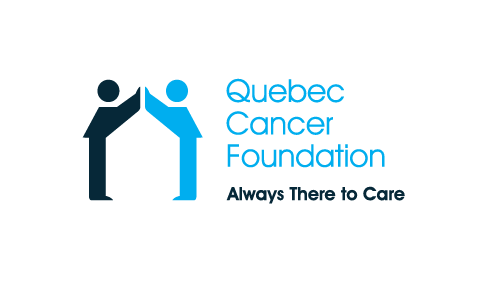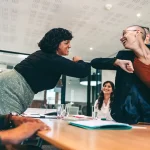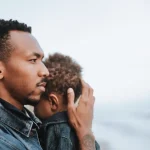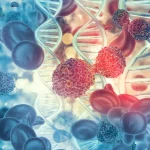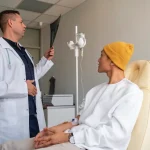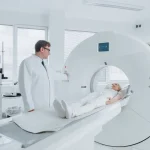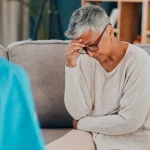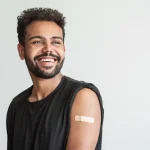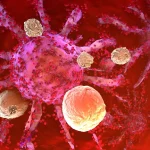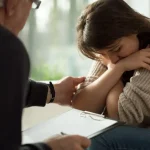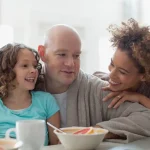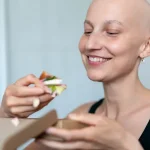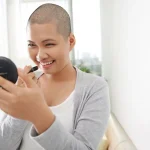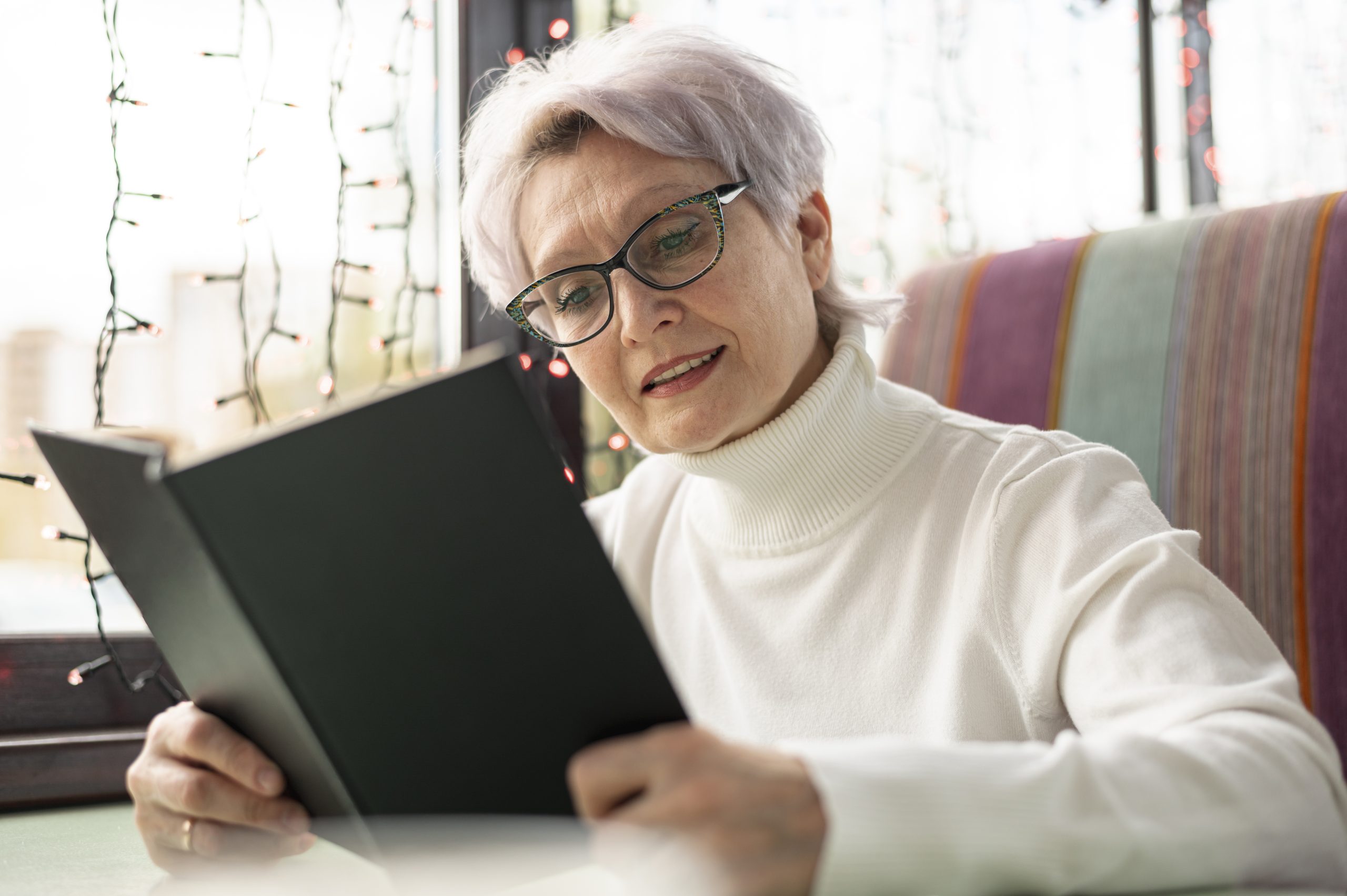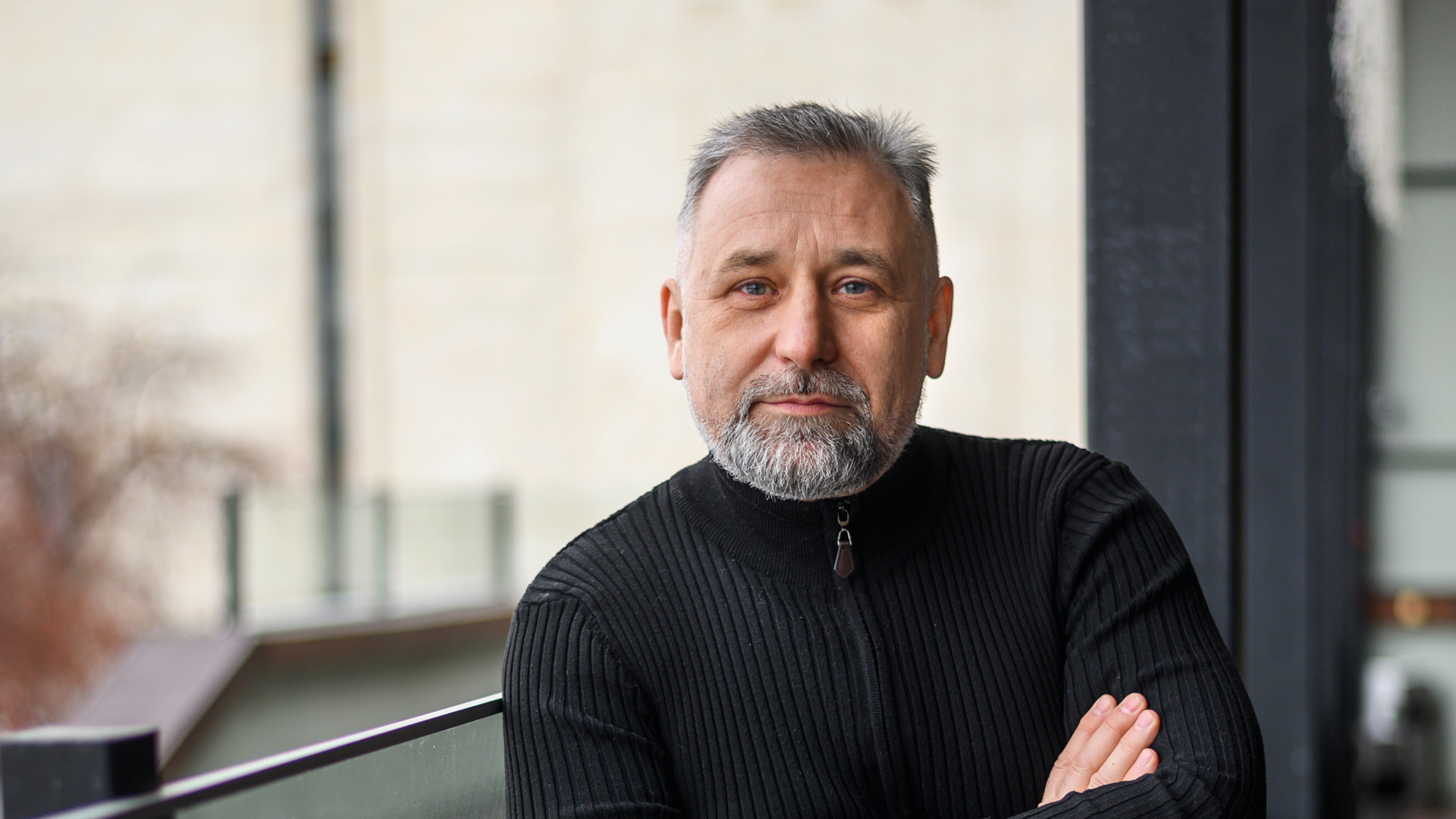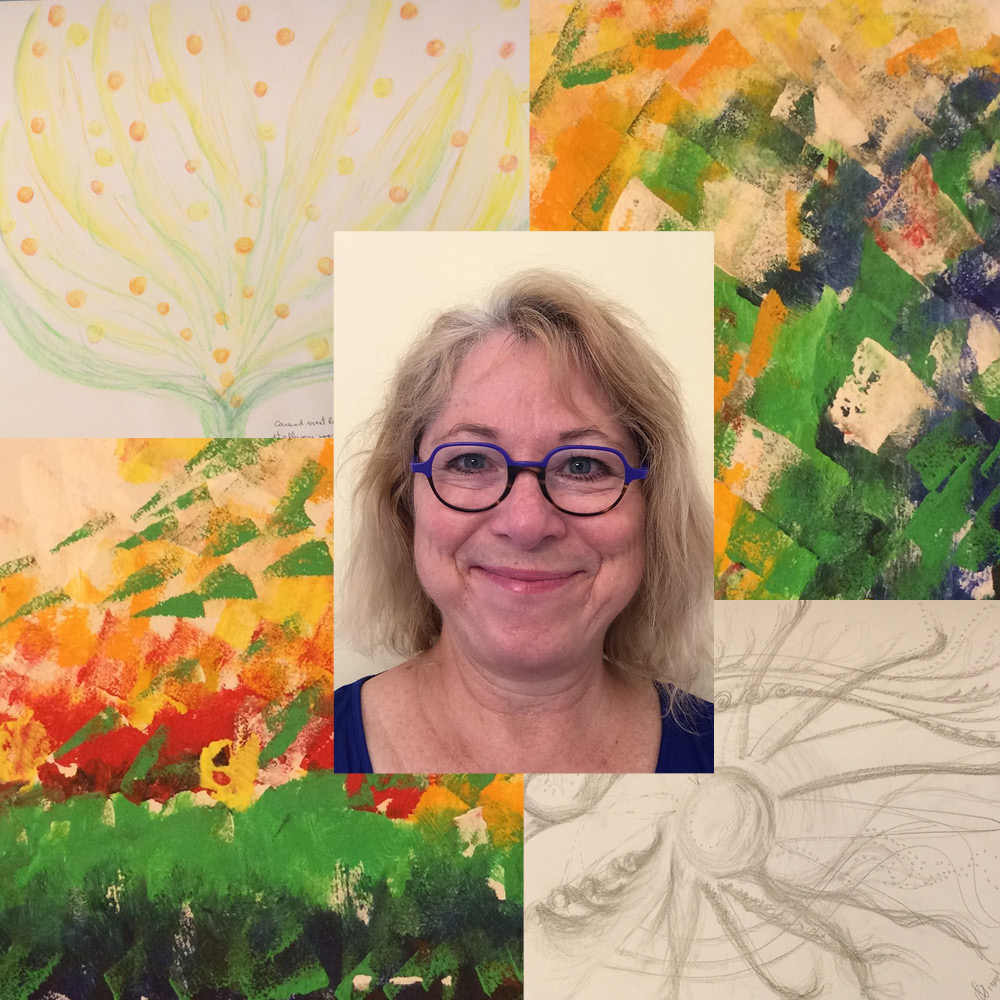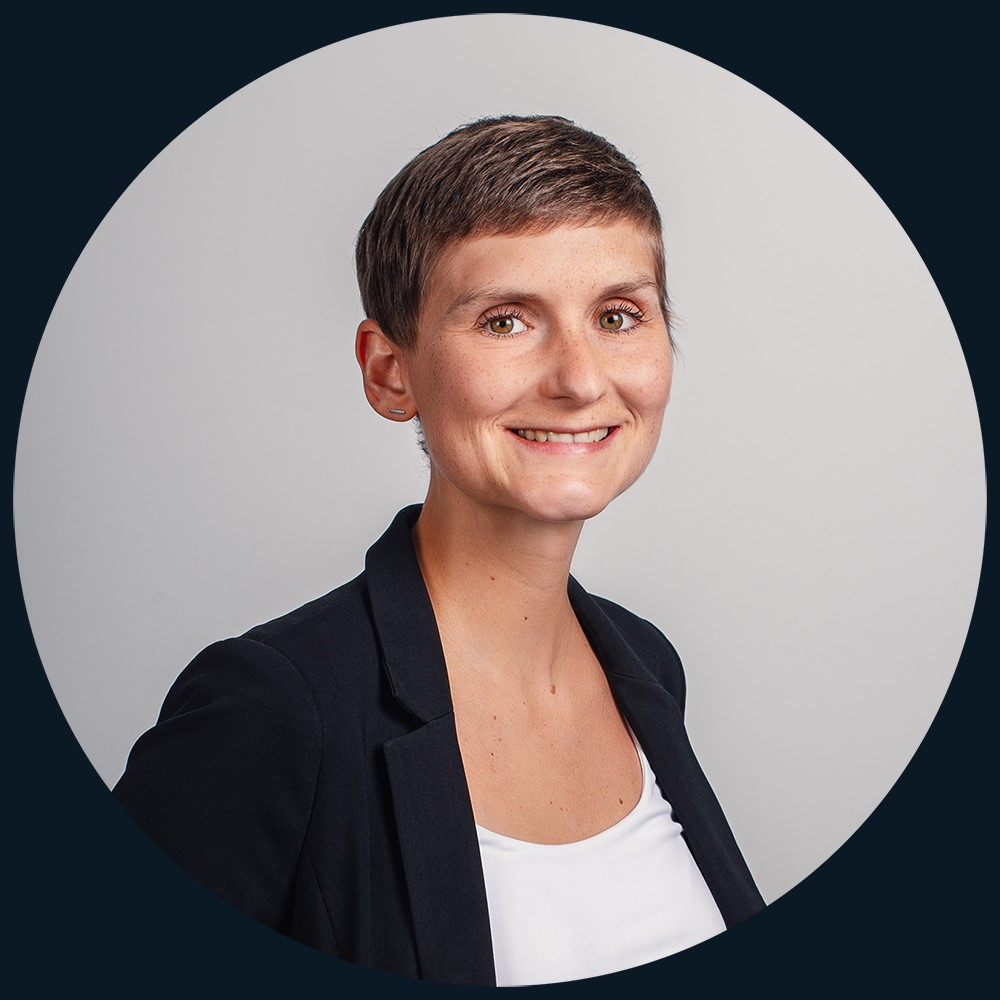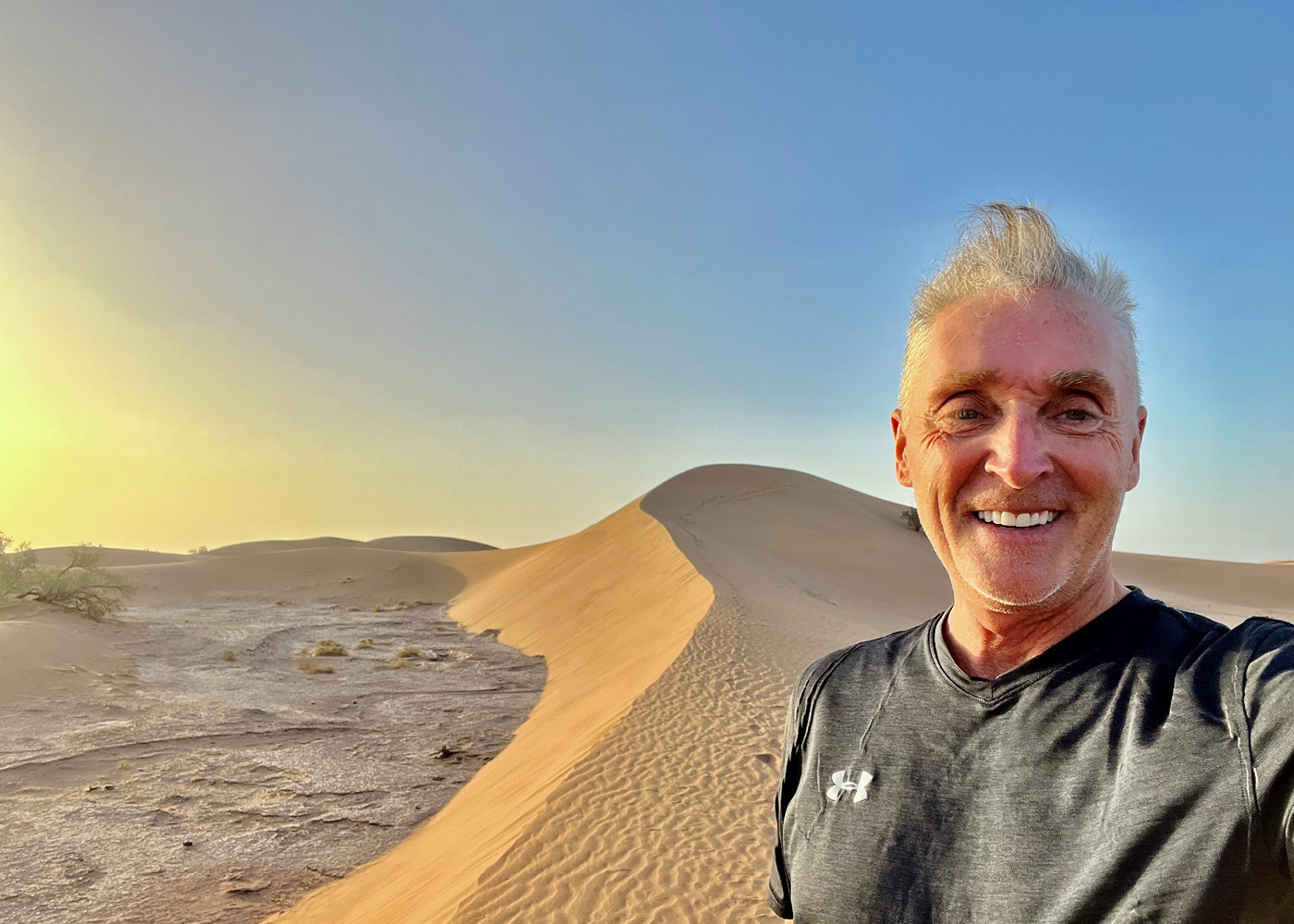Should I say my cancer story really began in 1974? Back then, it was only a harmless cyst in my right breast.
Then, in 2012, almost forty years later, like a dormant volcano, this scar awoke. The area had become unusually sensitive, hard, and irritable. I was so worried that I couldn’t eat. After some complex examinations and other complementary tests, the verdict was pronounced. The monster was given a name: multifocal breast cancer.
At the time of the announcement, I had my nephew with me. I’m deeply grateful to him for that. To spare him, I listened impassively, with dry eyes and a frozen heart, to the confirmation of the diagnosis I feared. I had somehow detached myself from myself. I was someone else. I was no longer alive. I was visibly withering away and I spent my nights with my mind wandering aimlessly.
Because my family lived so far away, I had to start off taking up residence on the living-room sofa in the 3 ½ apartment of my only close relative in the city. And then I had to fully assume two simultaneous roles: cancer patient and my own caregiver.
Before I could even understand what was happening, I was ordered to begin treatment immediately.
The stages and the grades didn’t matter, the important thing was that the octopus was inside me. How far would its tentacles reach? It wasn’t even my problem anymore.
When I started my chemotherapy treatments, I was in an altered state, physically weakened after spending two and a half months running the longest marathon that a human being has ever had to run. I was nonetheless psychologically determined to fully assume the defiant role of caregiver I was also required to play.
I commenced the war against this great intruder of no fixed address, while, ringing in my ears, were the echoes of murderous phrases that betrayed the inhuman indifference and abject cynicism of a certain knowledgeable acquaintance who repeated at every opportunity that even in North America, breast cancer was the leading cause of death among women. If this was to be my sentence, I was going to fight it to the utmost before I would admit defeat. After four months of agony suffered in solitude, I realized that the best thing to do was to laugh. Laugh at cancer, laugh at the world, laugh at myself, laugh for the sake of laughing. What a burden I had to carry!
I was on my way to the Virage Foundation when the bus stopping by chance on Champlain Street in Montreal, led me to the Quebec Cancer Foundation. I entered without knocking and without being invited, yet I was welcomed with great kindness. I was not familiar with any of the activities but I joyfully welcomed the promise of all the distractions I might discover there.
I was given massage therapy and kinesiology sessions. More precisely, just before the operation, the Foundation’s kinesiologist provided me with valuable advice on exercises I could do to soften the operation area and facilitate a rapid recovery. That helped me a lot. I am grateful.
But my biggest discovery was the art therapy workshop, which I continue to attend to this day.
I go to the workshops to recharge my batteries, for the serenity of the place, to find inner peace. I go for the softness of Lucie’s voice. Lucie is the art therapist who encourages me to dare to be less than perfect with no hangups, while still leaving me the freedom to choose the medium and colours that suit my mood that day. While the disease has made me lose most of my customary bearings, Lucie knew how to make me feel proud of the most trivial, most childish of my so-called artistic achievements. I’m able to create without any constraints, and that’s what’s important.
Very often when my mind is disturbed and my heart is weighed down by the endless questions that crowd into my sleepless nights, when the side effects of the treatment are insidiously working overtime, I drag myself to the studio to lessen their weight on a canvas or a colored drawing that is the mirror of my soul. And I always go away much lighter inside than when I arrived.
In addition, the Foundation is a place where I am able to meet with my “peers”, souls who can share their experiences in a very few words because we understand each other so well, bound as we are in silent solidarity by our shared destinies. Discovering and experiencing all this has been and remains for me one of the greatest gifts encountered on this ongoing journey.
The Quebec Cancer Foundation is a place that offers me the possibility of emotional release, discovery, expression and the revelation of the child within me that was so long ignored.
The Foundation gives me the opportunity of clearing my mind in an atmosphere of relative calm. This is the best technique for letting go that I know of, one that brings me such deep relief.
I consider it a privilege to be a beneficiary of this special place. I enthusiastically recommend anyone affected by cancer to find out about the Quebec Cancer Foundation. You will discover how consoling it can be. Make it your outlet; it will relieve you of some of your pain. It is a little balm for the heart.
